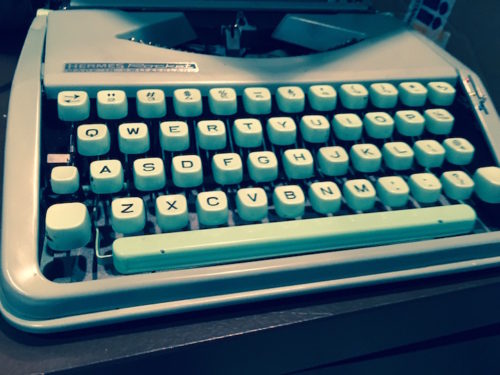By Jen Maidenberg, VP, Editorial, IOD
 In the time since I started a varied career that has always included some element of writing, the definition of “editor” has never been consistent. It changes depending on the publication or company I am working for, and has dramatically altered over the last 15 years as “features” have become “blogs” have become “content.”
In the time since I started a varied career that has always included some element of writing, the definition of “editor” has never been consistent. It changes depending on the publication or company I am working for, and has dramatically altered over the last 15 years as “features” have become “blogs” have become “content.”
I became an editor by accident, really, and most of my skills were learned on the job, over decades (yes, I’m that old) of working for or under experienced and skilled editors. But while many had “editor” in their title, not all did. Some of my editorial mentors were CEOs with a careful eye. Some were academics who carefully copyedited my poems and stories. In fact, still today when I’m editing someone else’s work, I hear the warning of my 10th grade English AP teacher, who took us down a whole grade if we used passive voice even once in a paper.
What’s in a Name?
At IOD, we divide our freelancers into two categories: expert and editor. These categories were established after a few internal arguments over who was a “writer” and who was an “editor” in our organization. This is because our fundamental business premise is “experts are not writers and writers are not experts.” In growing IOD, Ofir, our CEO, spent a lot of time recruiting marcom writers to work together with tech experts to produce high-quality content for our customers. (That’s actually how we met, too!) In many ways this system worked, but what we also realized is that our editors needed a particular skill set that not all marcom writers possess.
I’ve known a lot of talented writers over the years, but not all of them could provide constructive feedback on my writing, as an editor should. Not all of them had the patience to see the potential in a draft and support the writer to turn it into gold. And in the tech world that’s key! Marketing content for tech companies often needs much more massaging before it can be served up to readers, especially the good content that’s technologically deep.
Not Every Writer is a Good Editor
And, furthermore, not every good editor is a good fit as an IOD editor.
For instance, IOD editors do not need to have formal copyediting experience. They do not need to have memorized the Chicago Manual of Style. Fortunately (or not), today’s online content is not held up to the standards of the newspapers and magazines I used to work for in the 90s. But IOD editors do need pay close attention to grammar and to take their work slowly and seriously. We have no patience for sloppiness.
While IOD editors don’t need to deal directly with many of the business aspects of customer relations, they do need to have experience working with businesspeople. They do need to know how to communicate professionally, efficiently, and on-time. IOD editors don’t have to manage schedules, but they do need to be able to work under pressure and tight deadlines. They do need to produce what they said they would, when they said they would.
Our editors are good writers, too, since their main task is taking a very raw draft of words — that may or may not be proper English — and give those words a narrative, a structure, and a clear take-away. But the truth is our editors are much more than writers or editors. If I could, I would call them “superstars.” But Ofir and Ofer would probably roll their eyes and make fun of me.
Beneath the Surface of the IOD Editor
Our editors are mentors: they work odd hours of day and night with a tech expert who likely lives in a different time-zone than they do, whose native tongue is typically not English, and whose blog-writing skills are often very rough at first.
Our editors are customer service representatives: they all have some direct interaction with IOD customers on every task assigned, which means they must field direct criticism of their work and do so with a smile.
Our editors are also willing students (of cloud, DevOps, mobile, and other IT areas they’re not yet familiar with) and “translators.”
Our editors are also good people I can count on. A few of our editors are individuals I recruited precisely because they are good people with a known record of professionalism. Trust is big for us at IOD.
So, yes, we call them “IOD editors” and editing/writing are usually their specialty areas. But, truly, I work with a bunch of superstars. Roll your eyes if you want, but our editors, on occasion, are also “cheerleaders.” (Me, in particular. I’m the cheerleader. Go ahead. Roll. Eyes. I can take it. I’m that old.)
Does the above description sound like you? Do you want to work with us as an IOD editor? Drop me a line with a CV attached or a link to your LinkedIn profile.

